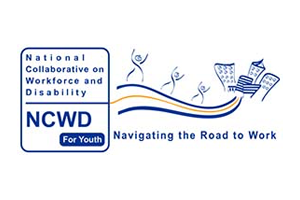Living Options
One aspect of transitioning to adulthood includes independent living. Independent living for a disabled young adult may include housing, transportation and the use of a personal assistant. Each young adult will have different needs, whether they will be joining the workforce, going to college, or will have someone helping to care for them. Teens that are reaching adulthood and not planning on living at home may begin preparing to move into another home, apartment, dorm or assisted living facility. Each individual will have different needs, depending on their goals. In addition, the type of disability they have may help to determine which housing situation will be best for them.
HOUSING
Dorms
Individuals attending college and living on campus often have access to dorms that are specifically for the disabled. These dorms provide accessible living arrangements, from ramps and wider doors to TTY services and special accommodations for service animals. To learn more about options available to disabled students on your campus, contact the Office of Student Services or Disability Services.
Rental Units
Rental units can be a good option if there aren’t accessible dorm units on campus or if an individual is going to work. The ADA prohibits discrimination based on disability and service animals, but some rental units may not provide all of the amenities a disabled young adult needs.
Affordable Public Housing
There are affordable housing options available in almost every community. Affordable housing consists of rental units (condos, apartments, townhomes) that cost less per month than other similar units in a community. These units are subsidized by the government and individuals who wish to live there have to demonstrate a financial need. The rent is then based on a sliding scale, according to an individual’s income. To learn more about affordable public housing, contact the Public Housing Agency in your area.
Home Ownership
For individuals who have a solid credit history and the money for a down payment, owning a home is an option. Homeownership is a big responsibility, and mortgage payments must be made on time each month to avoid financial problems. There are programs available to assist the disabled in obtaining their first home. To find out what is available in your area (such as the HomeChoice Program in California), speak with a realtor or a mortgage specialist at your local bank.
Assisted Living
Assisting living residences provide individuals with the security and assistance they need to live life like someone who is not disabled. Most assisted living communities provide on-site care, while some contract with outside agencies to provide care to residents. Amenities vary from facility to facility. Some may offer things like fitness centers, beauty salons, and transportation services. Costs vary depending on room size and level of care required.
Transportation
Transportation options for the disabled who cannot drive may vary by location. If using public transportation, it may be important to select housing close to a bus stop or rail system. Some disabled individuals may be eligible for special transportation services that are door-to-door. To learn more about transportation services that are available in your area, such as Paratransit, contact the local Department of Transportation office. The Department of Health and Human Services office in your county may also be able to assist you with finding transportation services for the disabled.
Personal Assistants
While not every disabled person needs a personal assistant, some individuals can accomplish more with the help of an assistant. A personal assistant, also known as a PA or PCA, may care for an individual during the day with activities such as dressing and preparing for school or work and then accompany the disabled individual throughout the day, providing the necessary assistance. A personal assistant may help a student with note taking and getting around campus or assist a worker in their place of employment by performing tasks such as interpreting or lifting items. Personal assistants are paid by the individual who has hired them. Funding to pay for an assistant may be available to the disabled through programs offered by your county’s Health and Human Services office. This office may also assist with locating individuals who are qualified to work as a PA or PCA.
INdependant LIVING Websites
UNDERSTANDING THE ICONS
Throughout this site you will see four different icons. These icons identify what topics the website links help with.
If you would like to see information pertaining to each topic, click on the buttons.













